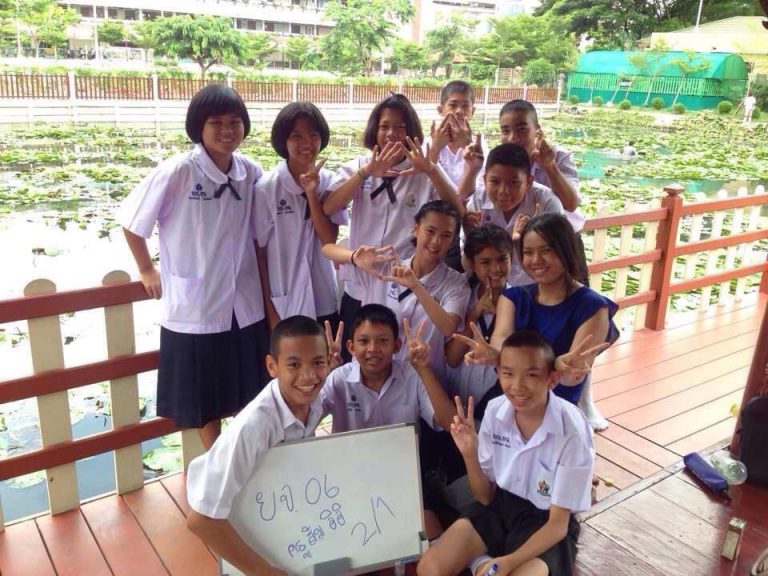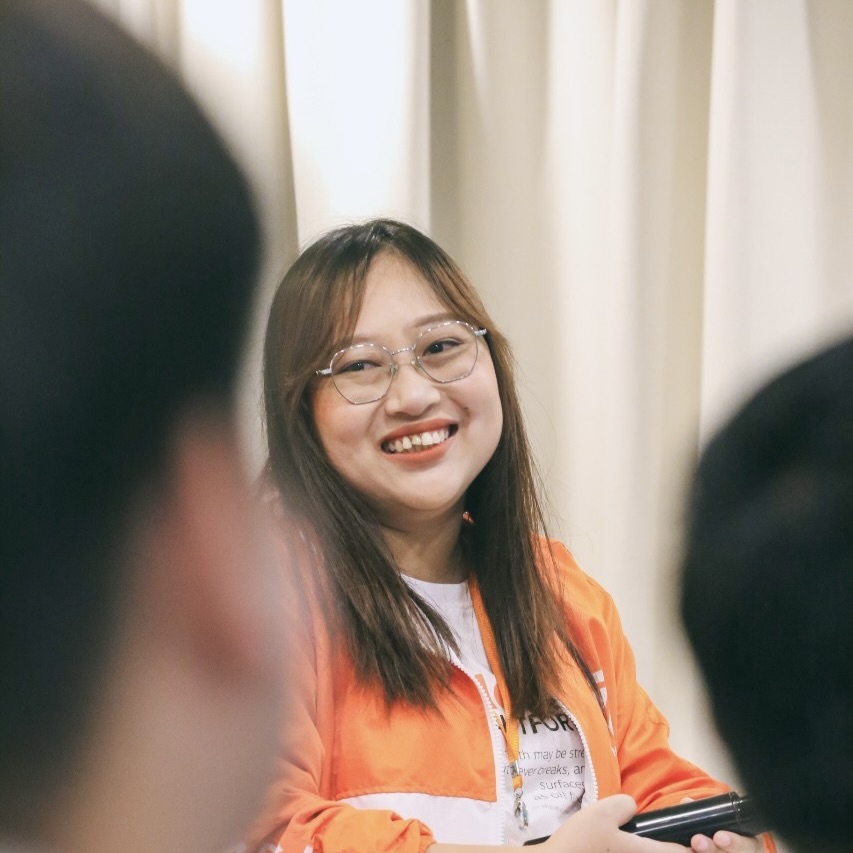Let The Women Lead Towards More Equality
International Women’s Day celebrates womanhood and raises awareness about gender equality, children's rights, and violence and harassment against women. The date was initially celebrated unofficially but gained legitimacy through the efforts of Women's Rights groups and the United Nations in 1977. In this article, we proudly introduce Som, Dew, Pailin, and Pi, Teach For Thailand alumni who, through their leadership, strive to improve society. Currently, they work in school leadership, social innovation, and educational policy. We had a conversation with them about women's education and leadership.

What does ‘leadership’ mean to you?
‘Som’ — Amornrat Srihapanya, an alumna from the first TFT cohort who currently works as a teacher and Assistant Director of the Health Promotion department at Thammasat Secondary School (TSS), sees ‘leadership’ as ‘possibilities.’
“For me, being a leader means being able to envision possibilities for development. Leaders should be aware of social phenomena, empathetic, and eager to learn more.”
‘Pi’ — Dujrapee Chaovanapricha, an alumna from cohort 3 who supports Thailand’s social innovation in both the economic and societal fields at the National Innovation Agency (NIA), believes ‘leadership’ is the determination towards one’s goal.
“A leader can guide the group toward the desired goal by earning respect and love from team members. They should be decisive and possess problem-solving capabilities.”

This sentiment resonates with ‘Pailin’ — Wachiraporn Niruntraporn, a cohort 3 alumna and representative of a political party in Hat Yai, Songkhla province. For her, being a leader means being able to ‘drive’ others towards their objectives, especially those concerning our society
“In my opinion, a leader is someone whose role is to propel a social agenda forward. This ‘society’ could be a family, an organization, a community, or a group activity in which we participate.”
How has Teach For Thailand helped you improve your leadership?
‘Dew’ — Thidamas Temsan, a cohort 2 alumna who is currently a teacher at Banmoung School, Lampang province, says, “Working here has instilled in me a habit of always setting goals and objectives, regardless of the task’s size. This helps me see the big picture and our desired results, as well as the means to achieve them.”
“For example, as a teacher, my work involves teaching to ensure my students can enhance their skills and capabilities. With that goal in mind, I can plan how to achieve it and view my students as working partners.”
For Pailin, the challenges in politics require her to believe in ‘what could be.’ There were times when she had to visit every single household to align her party’s vision with theirs.
“I dare say that my four years with TFT, both as a teaching Fellow and staff, have had a significant impact on my ability to surpass life’s limitations. When I am exhausted and feel like quitting, memories about my students always bring me back, and the skills I gained from TFT help me overcome the challenges.”
As for Pi, she has gained Deep Listening skills from joining TFT.
“One leadership skill I’ve acquired is Deep Listening. When I first started teaching, I’d always question why my students didn’t submit their homework or pay attention in class.”
“But when I started listening to them, I found the root causes. For example, many of them hadn’t memorized the alphabet, meaning they could not understand more complicated content. Many others are immigrants, and their parents could not help with their homework. When I started listening, I could identify the problems and the solutions.”
How does education improve a woman’s life?
Education is another crucial factor in improving women’s lives in an unequal society. For Som, education helps a woman discover her potential.
“Education helps women become more aware of social phenomena and the rapidly changing world and lifestyles. Moreover, it provides us with a meaningful learning process so we can maximize our potential and live without fear.”
For Dew, education creates gender equality.
“Education is key to gender equality. In the past, women did not have the same rights to education as men, which created an impression that men were superior. Women were expected to stay at home, be housewives, and please their husbands. However, our society has changed as more people receive education. Any gender can pursue their life goals.”
As for Pailin, she observes three crucial factors for women’s education: legality, budget allocation, and curriculum.
“We need to raise awareness about gender equality. How do we ensure our students understand what ‘patriarchy’ means and that it exists, and does not contribute to nurturing that ideology? For example, we should stop assigning jobs based on gender. No more ‘dad is the leader’ and ‘mom is the housewife,’ but we should teach students to believe in the potential of any human being.”
As a leader, what are you trying to improve in your field of work?
“As Assistant Director of the Health Promotion department, I work with my team to raise awareness and improve skills for coping with globalization and changing lifestyles. We work with students, parents, teachers, and schools — everybody is involved,” Som replied.
As for Pi, she supports the social innovation system of Thailand in both economic and social fields at the National Innovation Agency (NIA).
“My work is to support innovators’ potential so they can be creative and productive. NIA also provides grants for innovation projects, and we promote products created by Thai people. NIA also has campaigns designed for women, such as curriculum for upskilling female entrepreneurs, or ‘MALI,’ an application supporting pregnant women to overcome challenges.”
Pailin is driving social change as the youngest candidate in the recent election.
“For me, I strive to build trust with the people so I can become a member of parliament. In other words, I ensure that people trust me enough to represent them in parliament and advocate for their interests.”
And for Dew, she supports her students so they can learn and maximize their potential.
“My goal is to find ways to enable my students to enhance their skills, talents, and potential through planning and working with them.”
On the occasion of International Women’s Day, Teach For Thailand invites all of you to support leaders like these who strive for social equality and sustainable community development. Your support will change the lives of children, youth, people, and many communities in Thailand.

